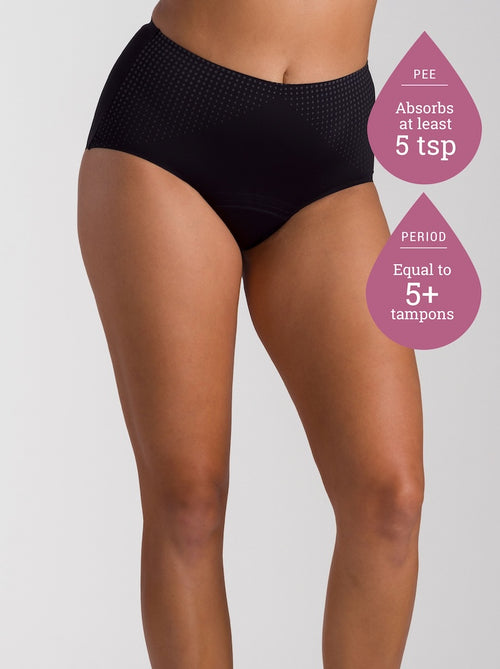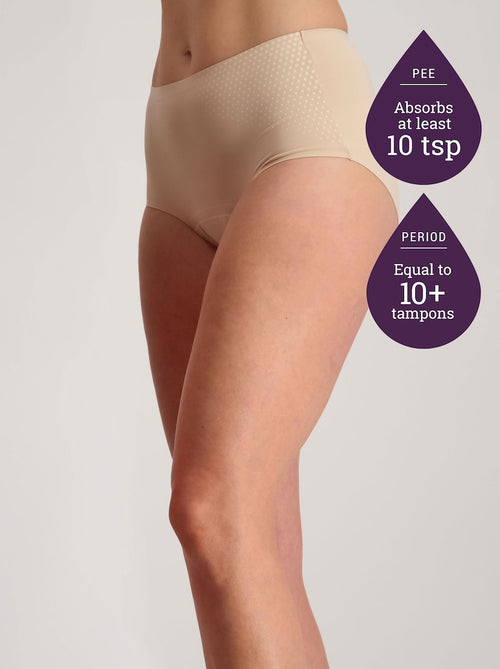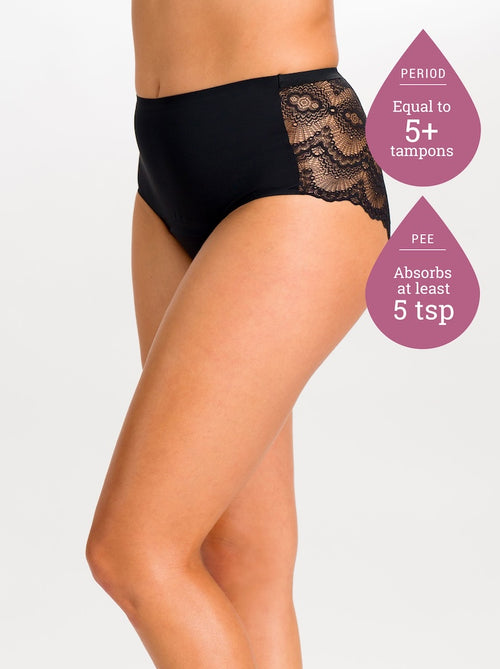By guest expert Tania Clifton-Smith, respiratory-musculo physiotherapist and international authority on breathing dysfunction and breathing pattern disorders.
Coughing and incontinence
Coughing and incontinence
Since Covid swept the world we’ve all become hypervigilant of coughing – both our own and that of others. Coughing is a common reflex action that functions to clear the throat or airways of mucus or foreign irritants. But for anyone experiencing any form of incontinence, a cough is so, so much more – just like a sneeze or a laugh, a cough is a feared reflex that leads to potential leakage.
If you experience stress incontinence caused by coughing, sneezing or other actions such as running or lifting heavy items, there are many ways physical therapists like myself can help, from pelvic floor exercises through to breathing retraining. I have specialised in breathing retraining for more than 30 years, so my job is helping with cough control. I was so excited to come across Confitex absorbent underwear, which I recommend to my clients as a comfortable and convenient way of managing their bladder leakage while they strengthen their pelvic floor and learn to control their cough through breathing.
Here I’ll answer some of the common questions I get asked by my patients:
Why do I pee when I cough?
When we cough our tummy muscles contract. This places increased pressure on the bladder and pelvic floor. The pelvic floor muscles may relax momentarily, and this can allow urine to leak through the urethra and out of the body.
How do I stop peeing when I cough?
Part of the job of a pelvic health physical therapist is to help people strengthen their pelvic floor muscles through exercises such as kegels. This helps, but takes time. In many cases, breathing exercises can also help. In the meantime, wearing protective underwear can help reduce the anxiety and fear of leakage by absorbing any urine leakage.
What causes coughing?
There are many different causes that trigger the dreaded cough, from the common cold through to Covid-19. It may be caused by excess mucus in lung disease, gastric reflux, asthma or allergies, or it may be purely habitual. As a health professional, the first step is to identify the possible cause and understand why the cough is present.
What's the difference between a dry cough and a wet cough?
The cough may be dry or moist. A dry cough occurs due to inflammation or irritation in your airway. The common cold may present as a dry or moist cough. In gastric reflex, the cough is commonly dry. And an allergy cough is usually triggered by a postnasal drip. This is when the nasal lining becomes irritated by exposure to an allergen, such as animal dander, pollen or spores from mould or fungi. This causes more mucus to be produced in the nose, which drips from the nose down the throat, causing a tickle that leads to coughing.
A moist cough (also called a productive cough) occurs when more than the normal amount of mucus (phlegm or sputum) is produced in the airway of the lungs. This is common in many chronic lung diseases and people with these health issues are taught how to clear their lungs effectively daily. It’s important to clear this as if this mucus gets stuck in the periphery of the airway it can become infected. If the colour of the mucus changes from clear to a greenish colour you need to see your doctor and probably take antibiotics.
How do I know if my cough is serious?
A cough lasting less than three weeks is termed acute and one persisting longer than eight weeks is defined as chronic. Coughing can alert us to a problem, so please see your health professional if it causes chest pain or difficulty breathing, if you are coughing up blood or coughing so hard you vomit, or if it goes on for longer than a few weeks or is interfering with your daily life.
How can I control my coughing?
Here are some top tips to try at home to reduce and control coughing, and hopefully the light bladder leakage that often accompanies it.
- Avoid mouth breathing, which causes harsh, dry air to move through the airway and can serve as an irritant.
- Breathe through your nose, low and slow into your belly, at low volumes. These relaxed breathing patterns are more energy efficient than upper chest breathing, which causes energy-hungry and tense breathing patterns, irritating the airways.
- Sip plenty of water. Hydration helps mucus move more easily and helps calm a dry, irritating cough. Pause between sentences when talking and swallow to soothe the airways.
- Suck over-the-counter cough lozenges before telephoning or speaking for long periods.
- To suppress the desire to cough, at the first sense of a tickle, swallow hard, then drop your shoulders and concentrate on breathing out, then focus on breathing slowly for a few seconds. Repeat if necessary.
Leading physiotherapist and breathing dysfunction specialist Tania Clifton-Smith trains physiotherapists and breathing experts around the world in a breathing system she developed during 30 years of helping people overcome their breathing issues. She has shared her expertise in several books. How to Take a Breath: Reduce stress and improve performance by breathing well includes advice on pelvic floor health, and is available online now.
you may like
-

EVERYDAY ABSORBENCY
Comfy absorbent women’s briefs designed for mild bladder leaks and light-to-moderate period days.Shop now -

EXTRA ABSORBENCY
This multi-tasking washable period-proof and pee-proof underwear absorbs more than ten teaspoons!Shop now -

EVERYDAY ABSORBENCY
Our signature lace-backed leakproof full briefs , offering both period-proof and pee-proof protection.Shop now -

-

-








